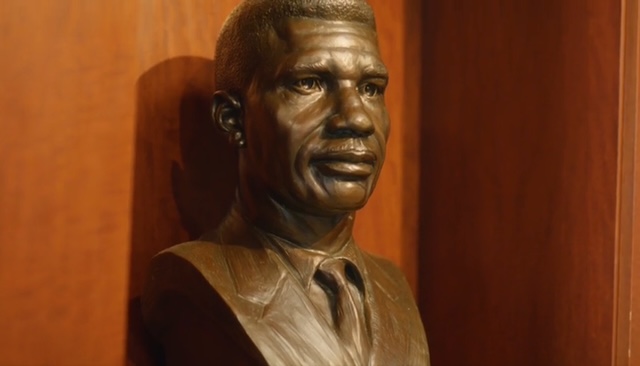The JAN is a Historical Legacy in Name and Mission

Medgar Wiley Evers had the courage of a soldier, the heart of a giver, and the dedication of a father. Evers is profoundly known as an NAACP member and the organization’s first Field Secretary in Mississippi, who was murdered in his driveway for his civil rights advocacy work. He is a well-deserved martyr because of it, but his outstanding attributes keep his legacy alive, researched, and sought after. The state’s most prominent and busiest airport is honored to dawn the name.
Initially, the airport opened in 1963 as Allen C. Thompson Field, named after the then-mayor of Jackson, and was later known as Jackson Municipal Airport. In 1989, after being designated an international port of entry, the airport was renamed Jackson International Airport. In December 2004, the Jackson City Council voted to rename the airport Jackson–Medgar Wiley Evers International Airport to honor Evers’ fight against segregation and promote voting rights for Black people in Mississippi.
The updated name was officially adopted on January 22, 2005, and later refined to Jackson–Medgar Wiley Evers International Airport, further cementing his legacy in the city and state. The renaming reflects the city’s recognition of Evers’ significant contributions and sacrifices in the struggle for civil rights. His footprint for positive change started earlier than most know in the Mississippi Delta, as he canvased the area selling insurance.
Evers’ parents were financially savvy, and they raised him with their stable philosophies. It’s no mystery why he became an insurance agent for a Black-owned company, Magnolia Mutual Insurance, after serving in World War II and graduating from Alcorn State University. As he traveled around the Mississippi Delta selling policies in the 1950s, he witnessed the harsh realities and poor living conditions Black people faced, particularly sharecroppers. This direct exposure to their struggles fueled his activism and commitment to fighting for racial equality.
He soon joined the local NAACP and the Regional Council for Negro Leadership, and he applied to law school at the University of Mississippi. After the university rejected his application, Evers considered suing but ultimately decided against further action. Representatives from the national NAACP, which had counseled Evers as his application was pending, were impressed and recommended that the organization hire him as its first Mississippi Field Secretary.
Between 1954 and 1963, Evers investigated dozens of cases of racial violence and discrimination, including the murders of Emmett Till, George Lee, J.E. Evanston, Timothy Hudson, and Clinton Melton, and the wrongful imprisonment of Clyde Kennard. He also collected affidavits from Black Mississippians who had been denied the right to vote and helped prepare several voting rights activists to testify before Congress during hearings related to the legislation that would eventually lead to the passage of the Civil Rights Act of 1957 and the Civil Rights Act of 1960.
###
ABOUT JMAA
The Jackson Municipal Airport Authority (JMAA) operates two airports: Jackson-Medgar Wiley Evers International Airport (JAN) and Hawkins Field Airport (HKS). JAN is the busiest airport in Mississippi, situated in the Central part of the state and serves the Capital region of Jackson with over 3,000 acres of property. JAN serves several of the world’s busiest global hubs and is home to the Mississippi Air National Guard 172nd Airlift Wing. HKS is a general aviation airport that houses two emergency response medical air transporters and the Civil Air Patrol. It is also home to the Mississippi Army National Guard 185th Aviation Brigade. The Authority provides service to nearly 1.3 million passengers per year.